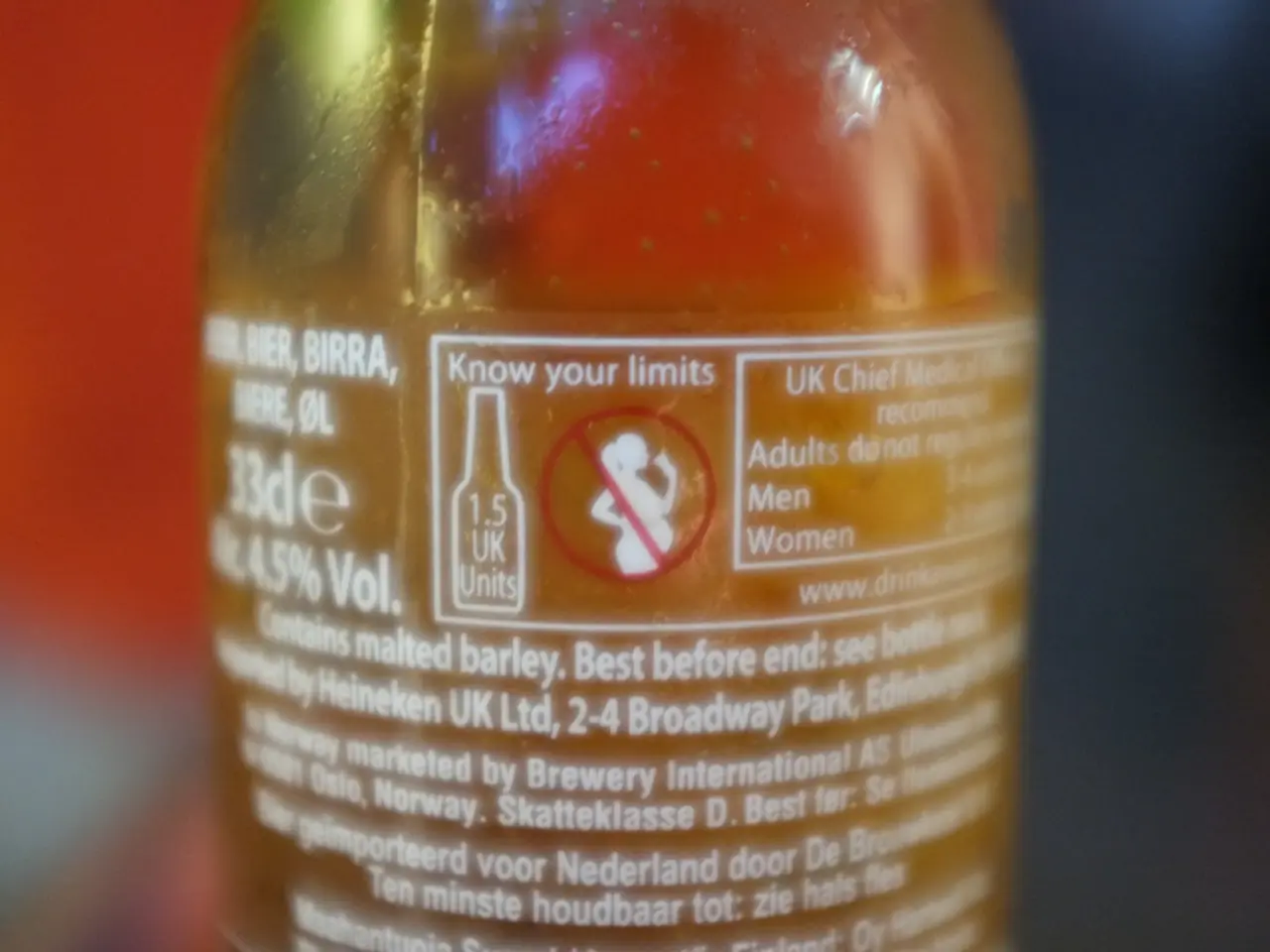European regulatory body endorses HIV injection that specialists believe can halt transmission
Lenacapavir, a groundbreaking HIV prevention drug, has been making waves in the medical community. This twice-yearly injectable medication, sold as Yeytuo in Europe by Gilead Sciences, has shown nearly 100% effectiveness in preventing HIV transmission in both men and women, making it the longest-lasting type of medication aimed at preventing the virus[1].
The U.S. Food and Drug Administration (FDA) authorized lenacapavir to prevent HIV in June, and earlier this month, the World Health Organization (WHO) recommended countries offer lenacapavir as an additional option to people at risk of HIV[2][3].
However, concerns have been raised about lenacapavir's global availability. Last year, there were approximately 630,000 AIDS deaths worldwide, highlighting the urgent need for effective HIV prevention measures[4]. Yet, lenacapavir is not being made widely available to stop global outbreaks of HIV, raising concerns[1].
Gilead Sciences has agreed to allow cheap, generic versions of lenacapavir to be sold in 120 primarily poor countries with high HIV rates, excluding nearly all of Latin America[1]. The majority of these countries are in sub-Saharan Africa, where HIV rates are high[5].
The Global Fund has secured access to lenacapavir for countries it supports, with early access prioritized based on HIV epidemiology, national prevention strategies, and resources[2]. The first deliveries are expected to begin by the end of 2025[2].
The European Medicines Agency (EMA) has recommended authorizing lenacapavir, and once authorized, the drug will be valid in all 27 EU member countries, Iceland, Norway, and Liechtenstein[3]. Gilead has committed to producing enough supply for up to two million people in licensing-covered countries until generics meet demand[1].
While lenacapavir is approved and recommended internationally, its global availability and distribution beyond the initial 120 poor countries with high HIV rates is not broadly established yet[1][2][3][4]. The focus remains strongly on maximizing impact in resource-limited settings due to the high unmet need and burden of new infections there.
With more than 40 million people estimated to have HIV, the need for a global solution to HIV prevention is evident[6]. UNAIDS chief Byanyima has suggested that President Donald Trump make a deal with Gilead to produce and license lenacapavir for the world, but the Trump administration is facing criticism for potential cuts to a global HIV/AIDS program[7].
In summary:
| Aspect | Current Status | |-------------------------------------|--------------------------------------------------------------| | Primary distribution focus | ~120 low- and lower-middle-income countries with high HIV burden (mainly sub-Saharan Africa) | | Regulatory facilitation | EMA’s EU-M4all for expedited review in LLMICs | | Supply commitments | Manufacturing capacity for up to two million people pre-generic competition | | Access outside poor/high-burden countries | Limited public information; FDA approval exists for U.S., WHO recommendation, but no broad global distribution announced beyond poor/high-HIV regions | | Implementation timeline | First deliveries expected end of 2025 in sub-Saharan Africa |
As the world continues to grapple with the HIV/AIDS epidemic, the availability and distribution of lenacapavir remain crucial issues that require urgent attention and action.
References: 1. Gilead Sciences 2. The Global Fund 3. European Medicines Agency 4. UNAIDS 5. World Health Organization 6. UNAIDS 7. The Hill
- The science community is thrilled about lenacapavir, an HIV prevention drug, being the longest-lasting medication in this field.
- Gilead Sciences, the company responsible for lenacapavir, has agreed to allow generic versions in countries with high HIV rates.
- The World Health Organization (WHO) recommends lenacapavir as an additional option for those at risk of HIV, yet concerns about its global availability persist.
- Lenacapavir showed nearly 100% effectiveness in preventing HIV transmission in clinical trials, making it revolutionary in the medical-conditions domain.
- Chronic diseases, including HIV, remain a significant challenge in the health-and-wellness sector worldwide, as over 40 million people are estimated to have HIV.
- The U.S. Food and Drug Administration (FDA) approved lenacapavir for HIV prevention in June, shedding light on its potential in the healthcare industry.
- Respiratory conditions, digestive health, and eye-health issues are just a few among the various areas where advancements in medical-science can positively impact our lives.
- The focus is on maximizing lenacapavir's impact in resource-limited settings due to the high unmet need and burden of new infections there.
- In the realm of fitness-and-exercise, maintaining a healthy body contributes to a strong immune system and can aid in the prevention and management of chronic diseases like cancer.
- Cancer remains a major concern in the health arena, accounting for the second-most deaths worldwide in 2020, after cardiovascular diseases [8].
- Climate change poses another challenge, as its effects can exacerbate both physical and mental health issues, calling for collaboration between environmental-science, industry, and finance sectors.
- Manufacturing plays a vital role in the production of essential medications like lenacapavir, and efforts should be made to ensure affordable access to these life-saving drugs.
- Mental-health issues are increasingly recognized as an integral part of overall health, with close to one in four people experiencing such conditions globally [9].
- The distribution of lenacapavir beyond the initial 120 countries is not broadly established yet, exacerbating the struggle against HIV outbreaks in other regions.
- Cardiovascular-health is crucial in ensuring a longer lifespan, with lifestyle factors such as diet and exercise playing significant roles in preventing cardiovascular diseases.
- Lenacapavir's manufacturing capacity is committed for up to two million people until generic versions meet demand, showcasing Gilead's commitment to the cause.
- Sexual-health is essential in maintaining overall health, with safe practices and education being key in the prevention of sexually transmitted infections and diseases.
- Autoimmune-disorders, such as lupus and rheumatoid arthritis, affect millions worldwide, necessitating further research and advancement in the medical field.
- Climate change also poses threats to environmental-science, as warmer temperatures shift ecosystems and exacerbate natural disasters.
- The manufacturing industry should prioritize sustainable practices to mitigate the negative impacts of climate change.
- Mental-health issues like depression and anxiety can significantly reduce productivity and quality of life, highlighting the importance of addressing these conditions in the workplace.
- The importance of mental-health cannot be overstated, as mental disorders cost the global economy over $6 trillion annually in terms of lost productivity and healthcare costs [10].
- Lenacapavir's twice-yearly injectable medication is a groundbreaking step forward in the fight against chronic diseases, including HIV.
- Wearables and smart-home devices are increasingly gaining popularity in the health-and-wellness sector, offering tools for monitoring personal health more effectively.
- Cybersecurity is another crucial aspect in today's technological world, ensuring the protection and privacy of individual and company data.
- As more devices become connected through data-and-cloud-computing networks, the risk of breaches and cyber-attacks grows, necessitating heightened cybersecurity measures across industries, including health, retail, and finance.
- Leadership plays a vital role in shaping the direction of organizations and industries, particularly in strategic decision-making around investments and partnerships.
- Diversity-and-inclusion initiatives are becoming essential in fostering innovation and creativity in the business world, including in industries like entrepreneurship and interior-design.
- Transportation is critical in facilitating access to essential services like healthcare, particularly in rural and underserved areas, as ineffective transportation infrastructure can hinder effective HIV prevention and treatment efforts.
- Investing in health-and-wellness, climate-change mitigation, mental-health support, and infrastructure development are all important steps in creating a more resilient and equitable future for all.








